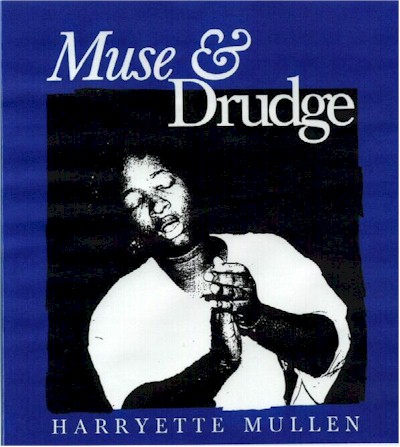
Excerpts from an Interview with Harryette Mullen by Calvin Bedient
HARRYETTE MULLEN: [M]y notion of who I was had to do with
being in a southern state--but in another way, Texas isn't southern: it's southwestern or
western. So it's being in and actually on the edge of a southern black culture. Texas,
when I was young, was a segregated state. I remember the colored and white signs on the
rest rooms and water fountains, and I remember the first time we tested integration by
going to a drive-in restaurant where they refused to serve us, and we left after waiting
there for about thirty minutes for our hamburgers that never arrived. We were the first
black family in our neighborhood, and our neighbors moved out; the next door neighbors
packed overnight bags and went to a motel so that they would not have to spend a single
night next to us. Another neighbor used to let his German Shepherd dog out to chase my
sister and me while we rode our bicycles to the Book Mobile, and it took us about three
trips before we realized that he was doing it deliberately when we saw him actually get up
from his porch and open the gate and let the dog out.
So that's part of what growing up in Texas meant to me. And the black community was a part of it, but we had a different perspective on it because my family had come from Pennsylvania and we spoke English somewhat differently. My mother was a schoolteacher, my grandfather was a Baptist minister, and we were considered to be very proper speakers of English compared to most of the people we lived around, who spoke definite black English and felt that our English was seditty or dicty or proper.
Living in Fort Worth also meant hearing Spanish spoken whenever I was outside of my neighborhood, say downtown or on buses, and wanting to know what people were saying in that language. Actually, where I heard Spanish spoken frequently was in my grandmother's neighborhood, a black community with one Mexican-American family. We used to practice our few words of Spanish with them. We always exchanged greetings in Spanish with the Cisneros family, her next door neighbors.
. . . .
One of the texts that has been inspiring to me is the work of Melvin Tolson, The Harlem Gallery. Tolson is seen as a belated and derivative modernist by some people, because he comes after Pound and Eliot and so forth, and he seemed to be responding to them and wanting to make his work reflect what they were doing in poetry. He saw possibilities that he hadn't thought about before, so he went about very systematically changing how he wrote and making it allusive and very complex. And one of the results is that Tolson's work is not being taught or read very much. So one of the questions or problems for me is the kind of aesthetic turf that exists for black writers, and how black writers who do not fit into the notion of what black turf is can sometimes be overlooked or forgotten or go unread, because people require interpretive strategies related to their notion of the black canon, or what it means to be outside of the black canon. There are certain examples, like Bob Kaufman, Melvin Tolson, or LeRoi Jones (before he became Baraka) or Stephen Jonas. Robert Hayden, even. Robert Hayden usually does get included in anthologies, but people sometimes talk about Robert Hayden as being in some sense on the edge of a black tradition, because the black tradition is being constructed as based in orality, and as concerned with a Black subjectivity in language that is speech-like. Some of my concerns about my work have to do with a fear of writing myself out of the tradition, which I don't intend to do. There are cautionary figures. I think that Baraka saw that possibility and averted it. Gwendolyn Brooks changed the way she wrote in response to the Black Arts, Black Aesthetic Movement. I don't want the oral tradition to be a prescription. I mean I have access to it and I think it's a rich reservoir of possibility, but also the written tradition is a rich reservoir of possibility.
BEDIENT: Why is the allusive method important to you?
MULLEN: It's important to me because I wanted the poem to be interesting and complex, as I think experience is, language is; language has that capacity. I was interested in concentrating, distilling and condensing aspects of orality and literacy. . . . I am more interested in a transformation of the oral into something that draws together different allusive possibilities in one utterance, which is something that writing can do better than speech. I'm interested in taking a speech-based tradition and transforming it through the techniques that are available to me in writing.
BEDIENT: Ultimately in the interest of self-determination, or perhaps of making the history of culture useful to you and present to you?
MULLEN: Primarily in the interest of making the poetry swing and also of making it richly allusive and complicated. But also, yes, those things that you mentioned. I want to push my work, and those are ways that I have found to push it beyond transcription, beyond the mimetic reproduction of speech or the oral tradition. I'm trying to transform the materials of orality into text and into a very dense and complexly allusive writing practice. You can also heighten paradox and contradiction when you compress together things that come from very different registers or different lexicons; they jostle each other so there's more tension. Yet there's more elasticity in the utterance.
From "THE SOLO MYSTERIOUS BLUES: An Interview with Harryette Mullen." Callalo (1996).
Return to Harryette Mullen